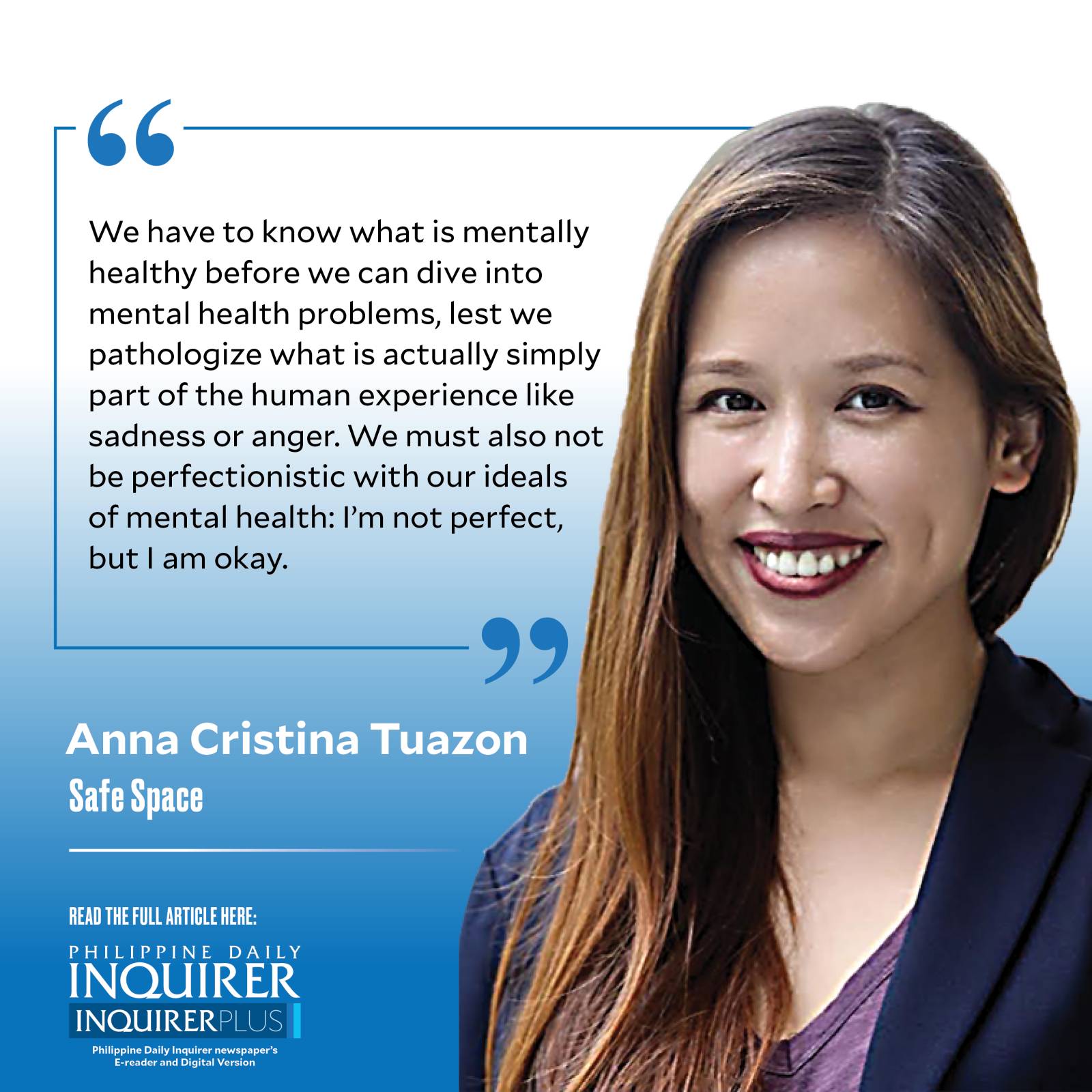Mental health month (1): Are you okay?

October is National Mental Health Month in the Philippines. As such, I will be devoting this whole month to providing a primer on mental health. Today, we will discuss what it means to be mentally healthy. Next week, we’ll discuss the top misconceptions on mental health and illness. The third week will be on maternal mental health. Finally, the last week will be about the mental health of a nation.
When people ask us how we are doing, we often say that we are okay. But what does it truly mean to be okay? For some, being okay means having no problems. For others, being okay means being happy and content. For most of us, that answer is simply a socially polite response, something that conveys that the other person need not worry about us (sometimes despite us not really being okay).
In mental health, okay means being mentally healthy. In this sphere, people often discuss about mental illness and other forms of distress. The absence of illness, however, is not sufficient for good mental health. You can be without illness but not necessarily healthy. So how do we know that we’re okay?
Whenever I give talks on mental health and stress management, I always preface them with signs of well-being or good mental health. Too often we focus on problems and challenges right away that we fail to reflect on our strengths and capacities. We also miss out on establishing a baseline to which we can compare our experience. Is anxiety, for example, always a problem that needs to be eradicated? How about sadness, for that matter? The following are the things I identify as hallmarks of good mental health:
First, we can only be okay if our basic needs are met. Are you sleeping enough? Eating enough? Engaging in enough physical activity? Our mental health is deeply tied to our physical health. We cannot be okay if our bodies are not. This is all easier said than done. I very rarely see a participant raise their hand whenever I ask who has been sleeping well. Unfortunately, we live in a society that does not value sleep. We are pressured into waking up early just to beat the morning traffic, spend long hours at school or work, and come home to more work. I cannot stress enough, however, how much quality of sleep can prevent mental illness and increase quality of life. A good night’s sleep can prevent manic and psychosis episodes, and reduce intensity of depressive and anxious mood. More than medication, I wish my clients good sleep. This goes a long way in preventing crisis, including suicide and self-harm risk. Eating and physical activity are important as well. Food greatly affects our mood; some help us feel more stable while others give us mood crashes that can lead to depression or anxiety. Physical activity is probably the most difficult recommendation for my clients. When you are depressed, the last thing you want to do is to move. However, physical activity can help break the perseverative loop of negative thoughts that typically imprison people with depression.
Second, being okay is not necessarily about having no problems whatsoever. Being okay means we can handle the problems that we do have. We call this distress tolerance. This includes being able to tolerate frustration (e.g., can our children handle losing in a game?), uncertainty and not knowing, and making mistakes. A person that is okay is flexible and able to adapt to change. We do not need to always solve our problems right away; we just need to feel that we can and identify what we need in order to solve them. Distress tolerance is something that I highlight especially when working with children and students. It does not set them up for good mental health to always have their problems solved for them. We need to teach them how to tackle a problem and overcome everyday challenges.
Third, being okay does not mean being happy all the time. A mentally healthy person allows for a wide range of emotions. It is just as healthy to feel sad, angry, excited, and scared. I worry more for those who do not allow themselves to feel unpleasant emotions as they are more likely to end up displaying extreme expressions that lead to self-destruction or violence against others.
Finally, being okay means that we are okay with the people we are with. An important criterion for mental health is the capacity to maintain relationships with others. This can be with family, friends, coworkers, or intimate partners. Every relationship has challenges and disagreements. But are you able to express yourself in a relationship? Are you able to engage in relationship repair? Are you able to consider and empathize with others? Do you like who you are in the relationship? These are the important skills in any relationship.
We have to know what is mentally healthy before we can dive into mental health problems, lest we pathologize what is actually simply part of the human experience like sadness or anger. We must also not be perfectionistic with our ideals of mental health: I’m not perfect, but I am okay.
—————-
aatuazon@up.edu.ph




















